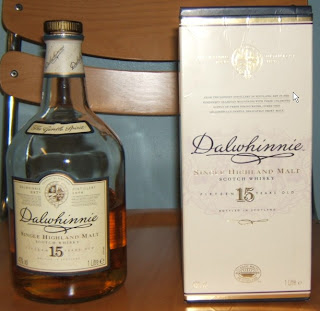If you are going to host a whisky review for many people, review all the samples a few days before and make notes. Then you are well prepared for the review and have decided in which order you should review the different whiskies. Those with the most flavour and / or smoke should be reviewed as the last sample.
It's always nice to get some information about each distillery and present it to the participants. There is a lot of information available on the Internet, just search for the name of the distillery in e.g. Google. If you use PowerPoint for your presentation, use only one page per distillery. It is after all the reviews that are most important.
If you have an open review then present the information about the distilleries before the review, but if it is a hidden review then present it after the review. A hidden review is arranged so that the participants should not have a preconceived opinion about the different samples when they see the bottles. Always let the participants give their opinion before you do it, otherwise they will be affected by your comments.
If the test is open, then start by pouring 2 to 2.5 cl whisky in each glass. If the test is hidden then ask the participants to leave the room after the presentation, and then pour the whisky.
First, we are going to use our eyes. The colour of whisky can often give us a clue as to what kind of cask has been used, unless caramel colouring is used. If you turn your glass I bit and swirl it, small drops are formed, so-called "tears” and the they can give us some clues as to what is in the glass. Very small drops tell us that the whisky is strong, above 50% alcohol strength. If the tears flow slowly, it could mean that it is an older whisky, because it becomes smoother by age.
1. Color(There are many nuances, but these are sufficient to cover most of the variants)
Pale yellow
Pale straw
Yellow
Gold
Amber
Deep gold
Bronze
Mahogany
Dark brown
Now we are going to use our nose. It is time to smell (nose) the whisky. Let's remember that there is at least 40% alcohol in the glass, so don’t stick your nose too deep into the glass. Take a slight sniff a few inches above the opening of the glass to find the volatile aromas. Then you can slowly move closer to the glass edge to find the heavier aromas. It can be difficult to put names on scents but after a series of reviews, it will be easier. Remember, we are all different and don’t be disappointed if you don’t find the same scents as the other participants do.
2. Nose, first impression, without waterLight
Fresh
Pungent
Sharp (spirit)
Warming
3. Nose, second impression, with water(There are many more scents, but these suggestions cover a big range)
Phenols - Medicinal, peat, smoke
Feint - leather, tobacco, sweat
Cereal - vegetables, malt, yeast, porridge
Floral - flowers, grass, leaves, hey
Esters - fruit, solvents, citric
Sweets - sherry, nuts, honey, chocolate
Wood - vanilla, resin, fat. pepper
Rancid - butter, fatty, rancid
Acid - acid, cheese, vinegar
Sulphur - rubber, gas, stagnant water
Musty - earth, mould
Now we are going use both the mouth and nose. It's time to taste the whisky. Take a zip of whisky in your mouth and swirl around the whisky to make contact with the whole mouth. Do not drink all of the whisky, leave some to compare after you have tasted the last sample. Then you can go back and compare again. You will notice that the smell has has changed quite a lot as your nose now had several different fragrance impressions of the other samples. The Whisky also changes the longer it is “open” to the air.
Drink water between the samples to neutralise your scences.
4. BodyLight
Medium
Full
5. Mouth feel Smooth
Oily
Rough
Dry
6. Primary tasteSweet (front of the tongue)
Salty (front side)
Sour (sides of the tongue and the upper lip)
Bitter (tongue root)
7. Overall flavour(There are many more flavours, but these suggestions cover a big range)
Phenols - Medicinal, peat, smoke
Feint - leather, tobacco, sweat
Cereal - vegetables, malt, yeast, porridge
Floral - flowers, grass, leaves, hey
Esters - fruit, solvents, citric
Sweets - sherry, nuts, honey, chocolate
Wood - vanilla, resin, fat. pepper
Rancid - butter, fatty, rancid
Acid - acid, cheese, vinegar
Sulphur - rubber, gas, stagnant water
Musty - earth, mould
8. Finish(This tells how long and how big the finish is)
Short - medium - long
Small - medium – large
9. GradingFirst, ranks the samples. Give the best a 1, the second best a 2, etc. Then you give your marks. Normally a scale of 1 to 10 is sufficient, but if you want to be more specific you can use a scale of 1 - 100.
A scale from 1 to 10 can look like this:
1. Defective
2. Undrinkable
3. Very bad
4. Bad
5. Approved
6. Good
7. Very good
8. Delicious
9. Exceptional
10. World-class
The grade 6 corresponds to an average whisky and this represents about 40% of all whiskies.
Write down the review results in notes and save as a reference for later reviews.
NOTE! Don’t be to scientific in the reviews, the experience of a whisky is very individual and can vary a lot between different people. Do not take too much impression of what others say before the review, it is your own opinion that matters.
A whisky tasting should be instructive, funny and a pleasure.
Slàinte












